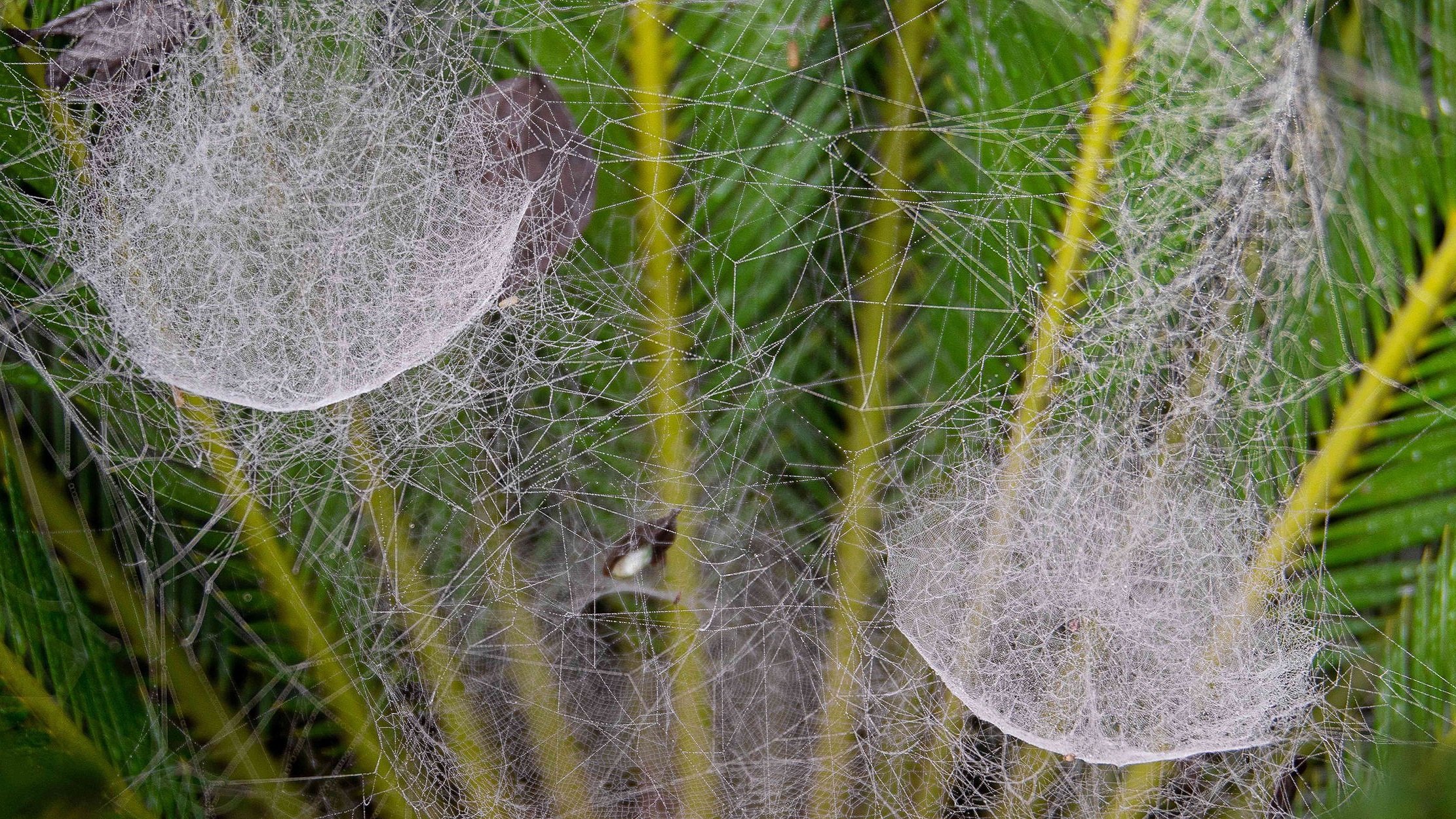Arachnid Allure: Do Spiders Like Humidity? Uncover the truth about humidity’s impact on spiders
Spiders thrive in humid environments and are attracted to moisture in their search for shelter, food, and mating opportunities. While some spiders prefer damp areas inside a home such as basements and crawl spaces, others may seek drier environments.
This attraction to humidity makes it important to control indoor moisture levels, especially if you want to reduce the spider population in your home. By understanding the link between spiders and humidity, you can take preventive measures like using a dehumidifier to create an inhospitable environment for these arachnids.
This proactive approach may help reduce the presence of spiders and contribute to a more comfortable living space.
The Importance Of Humidity For Spiders
Humidity plays a vital role in the lives of spiders, influencing their health and behavior. Understanding the relationship between humidity and spiders is crucial for creating suitable environments for these fascinating creatures.
Humidity As A Vital Factor For Spider Health
Maintaining optimal humidity levels is essential for the well-being of spiders. Inadequate humidity can lead to dehydration, adversely affecting their physiological functions and overall health. On the other hand, excessive humidity can create a favorable environment for developing fungal infections in spiders. Therefore, ensuring an appropriate humidity balance is crucial for supporting the health and longevity of spiders in captivity or natural habitats.
Relationship Between Humidity And Spider Behavior
Humidity significantly influences various aspects of spider behavior. Spiders are known to exhibit preferences for specific humidity levels based on their species and environmental adaptations. For instance, certain species may seek out areas with higher humidity to aid in prey capture, while others may favor drier environments for nesting and web-building. Understanding how humidity impacts spider behavior is vital for creating optimal conditions that promote natural behaviors and contribute to the overall well-being of these arachnids.

Credit: www.janeperrone.com
The Effects Of High Humidity On Spiders
High humidity can have varying effects on spiders, as some species prefer moisture-rich environments while others do not. Certain spiders, like jumpers and wolf spiders, are attracted to humidity as it aids in catching prey, while others may prefer drier environments.
It’s essential to understand the specific humidity preferences of different spider species to address their presence effectively.
The Effects of High Humidity on Spiders Spider enthusiasts may wonder about the effects of high humidity on their arachnid friends. Humidity plays a vital role in the life of spiders, impacting their behavior, reproduction, and development. Understanding the effects of high humidity on spiders can help create a suitable environment for these creatures. Exploring the impact of humidity on spiders’ reproduction, development, and behavioral changes sheds light on the unique relationship between arachnids and their environment.
Impact On Spider Reproduction And Development
High humidity can significantly influence the reproduction and development of spiders. Prolonged exposure to high humidity levels can create an ideal environment for spider eggs to thrive, leading to an increase in the spider population.
Additionally, high humidity can accelerate the molting process, allowing spiders to grow and develop at a faster rate. This relationship between humidity and spider reproduction demonstrates the crucial role that environmental conditions play in the life cycle of spiders.
Behavioral Changes In Spiders Due To High Humidity Levels
Spiders exhibit distinct behavioral changes in response to high humidity levels. Increased humidity can encourage spiders to become more active, as it creates a favorable environment for hunting and mating. Conversely, some species may seek shelter in damp areas to avoid desiccation, leading to changes in their web-building behavior and foraging patterns. By adapting to high humidity levels, spiders demonstrate their remarkable ability to respond to environmental cues and adjust their behavior accordingly.
In conclusion, high humidity can impact spiders’ reproduction, development, and behavior. Understanding these effects can help spider enthusiasts provide suitable habitats for these fascinating creatures, ensuring their well-being and natural behaviors are supported. By considering the influence of humidity on spiders, enthusiasts can gain a deeper appreciation for the intricate relationship between these arachnids and their environment.
The Effects Of Low Humidity On Spiders
Spiders are fascinating creatures with unique environmental requirements. Humidity plays a crucial role in their survival and well-being. Understanding how low humidity affects spiders is essential for ensuring their welfare and managing their presence in our surroundings.
Drought Stress And Dehydration In Spiders
Spiders are highly sensitive to environmental conditions, and low humidity can significantly impact their physiology. When exposed to low humidity levels, spiders may experience drought stress, leading to dehydration. This can have detrimental effects on their internal water balance and overall health. Particularly for species adapted to humid habitats, prolonged exposure to low humidity can be challenging and may hinder their ability to thrive.
Behavioral Adaptations Of Spiders In Response To Low Humidity
Spiders have evolved remarkable behavioral adaptations to cope with low-humidity environments. Some species may seek shelter in microhabitats with higher moisture levels, such as leaf litter or underground burrows. Additionally, spiders can exhibit altered activity patterns, minimizing water loss by reducing movement and altering their foraging behavior. These adaptive responses enable spiders to mitigate the adverse effects of low humidity and enhance their chances of survival in arid conditions.
Balancing Humidity For Spiders In Captivity
Maintaining the right humidity is crucial for spiders in captivity. Too much or too little humidity can be harmful, leading to dehydration or fungal infection. It’s best to provide a humidity gradient, allowing the spider to choose the level that suits them best for optimum health and well-being.
Creating Optimal Humidity Conditions For Pet Spiders
Maintaining the right level of humidity is crucial for the well-being of pet spiders. In their natural habitats, spiders are accustomed to specific humidity levels, and replicating these conditions in captivity is essential for their health and comfort. Ensuring optimal humidity conditions helps prevent issues such as dehydration or fungal infections, which can arise from too little or too much humidity.
Challenges Of Maintaining Humidity For Captive Spiders
Creating and maintaining the ideal balance of humidity for captive spiders can pose several challenges. It requires a keen understanding of the specific needs of the spider species in question, as different species may have varying humidity requirements. Factors such as the size of the enclosure, ventilation, and the use of water sources all play a role in regulating humidity levels. It’s also important to monitor and adjust humidity levels regularly to ensure they remain within the appropriate range for the spiders’ well-being.
Moreover, fluctuations in humidity levels can impact the spiders’ behavior, molting process, and overall health. It is crucial to provide a stable and suitable humidity environment to support the spiders’ natural behaviors and physiological processes.
Natural Habitat Variation And Spider Adaptations
Natural habitat variation plays a crucial role in the adaptation and evolution of spiders. Spiders have shown remarkable flexibility in their ability to thrive in various environments, from dry deserts to humid rainforests. This adaptability has allowed them to diversify and occupy diverse ecological niches, making them one of the most successful groups of arthropods on the planet.
Ecological Significance Of Humidity For Diverse Spider Species
Humidity is a critical environmental factor that significantly influences the distribution and behavior of diverse spider species. Spiders exhibit varying preferences for humidity levels based on their natural habitats. Some species thrive in high-humidity environments, such as tropical rainforests, while others are adapted to arid conditions with low humidity levels.
Evolutionary Responses Of Spiders To Varied Humidity Environments
Spiders have evolved remarkable physiological and behavioral adaptations to respond to the challenges posed by varied humidity environments. In high-humidity regions, certain spider species have developed hydrophobic exoskeletons and specialized respiratory systems to prevent water loss and facilitate gas exchange. Conversely, in arid environments, spiders have evolved efficient mechanisms to conserve body moisture and withstand desiccating conditions.
Conclusion
Maintaining the right humidity level for spiders is crucial for their well-being. Establishing a humidity gradient allows spiders to thrive in optimal conditions while avoiding issues like dehydration or fungal infections. By understanding the impact of humidity on spiders, homeowners can take measures, such as using dehumidifiers, to control spider populations in their living spaces.
Frequently Asked Questions For Do Spiders Like Humidity
Is Humidity Bad For Spiders?
High humidity can lead to fungal infection in spiders, while low humidity can cause dehydration. It’s best to establish a humidity gradient for spiders to choose their preferred level.
Does A Humidifier Get Rid Of Spiders?
A humidifier does not get rid of spiders. High humidity can actually attract spiders, so it’s recommended to eliminate high humidity areas in your home and consider using a dehumidifier to control insects and spiders.
What Attracts Spiders In Your Room?
Spiders are attracted to warm, dark spaces, moisture, and the presence of insects or prey in your room.
Does Moisture Attract Spiders?
Moisture does attract spiders. Some spiders are drawn to damp areas inside homes, like basements and crawl spaces.





